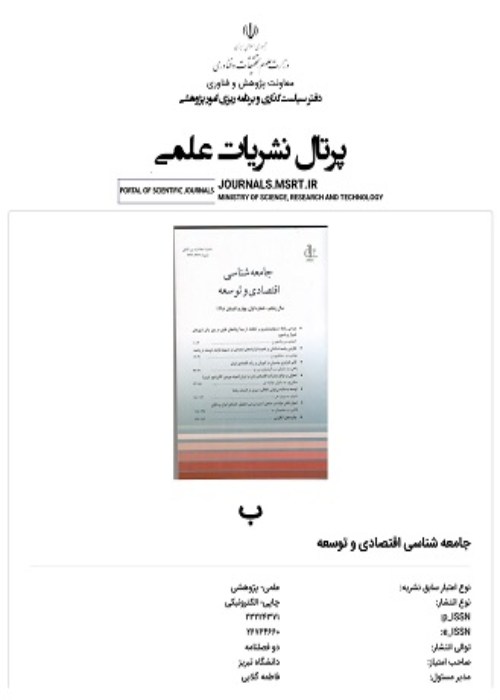Review of Fifth Planning Program During Pahlavi and Islamic Revolution of Iran
Author(s):
Abstract:
Although the political dimensions of the crisis of the government of king, Mohammad Reza, was apparently important, its economical dimension was more continues and deeper. The main and important economical policies of king during his government were: A) five- developmental program and B) Land reforming. These resulted in developing of Capitalism in Iran. Nevertheless, disregarding its political and social aspects could cause a lot of problem for the regime. The balance of social classes was consequently disordered. In the years leading up to the revolution, the regime found itself in the crisis of legitimacy. The main element of this crisis was planning and decision-making at the level of macro-economy. In addition to this, another element that increased the role of government in national economy in terms of investment, management, and decision-making was oil phenomenon. However, the ruling elite and the king, in the head, neglected one element during industrialization and economical development was the risk of unrealizing those above-mentioned goals which were followed during 1328 to 1356. Finally, this risk was accomplished.
Keywords:
Language:
Persian
Published:
Journal of Economic Sociology and Development, Volume:4 Issue: 2, 2016
Pages:
1 to 27
magiran.com/p1664780
دانلود و مطالعه متن این مقاله با یکی از روشهای زیر امکان پذیر است:
اشتراک شخصی
با عضویت و پرداخت آنلاین حق اشتراک یکساله به مبلغ 1,390,000ريال میتوانید 70 عنوان مطلب دانلود کنید!
اشتراک سازمانی
به کتابخانه دانشگاه یا محل کار خود پیشنهاد کنید تا اشتراک سازمانی این پایگاه را برای دسترسی نامحدود همه کاربران به متن مطالب تهیه نمایند!
توجه!
- حق عضویت دریافتی صرف حمایت از نشریات عضو و نگهداری، تکمیل و توسعه مگیران میشود.
- پرداخت حق اشتراک و دانلود مقالات اجازه بازنشر آن در سایر رسانههای چاپی و دیجیتال را به کاربر نمیدهد.
In order to view content subscription is required
Personal subscription
Subscribe magiran.com for 70 € euros via PayPal and download 70 articles during a year.
Organization subscription
Please contact us to subscribe your university or library for unlimited access!


